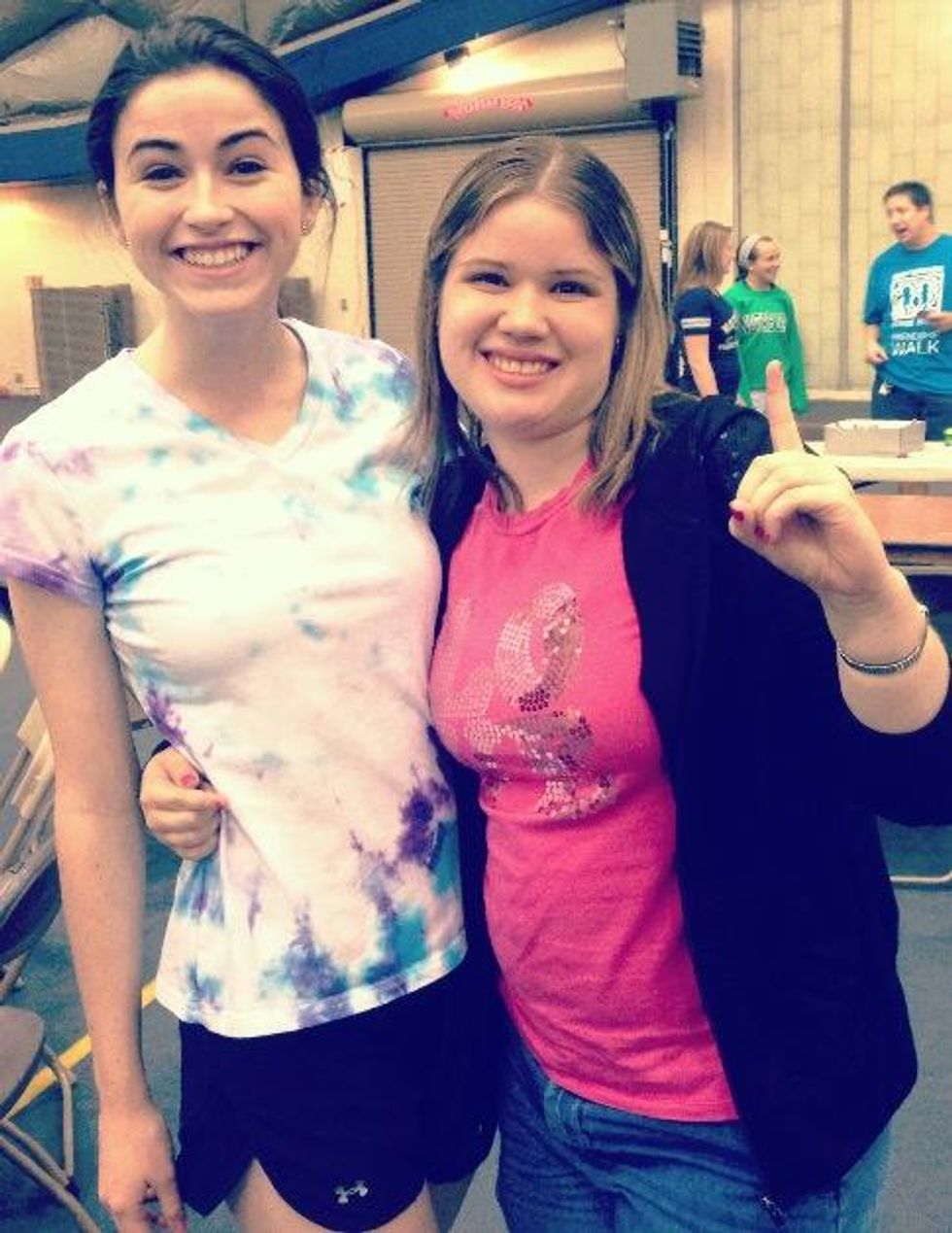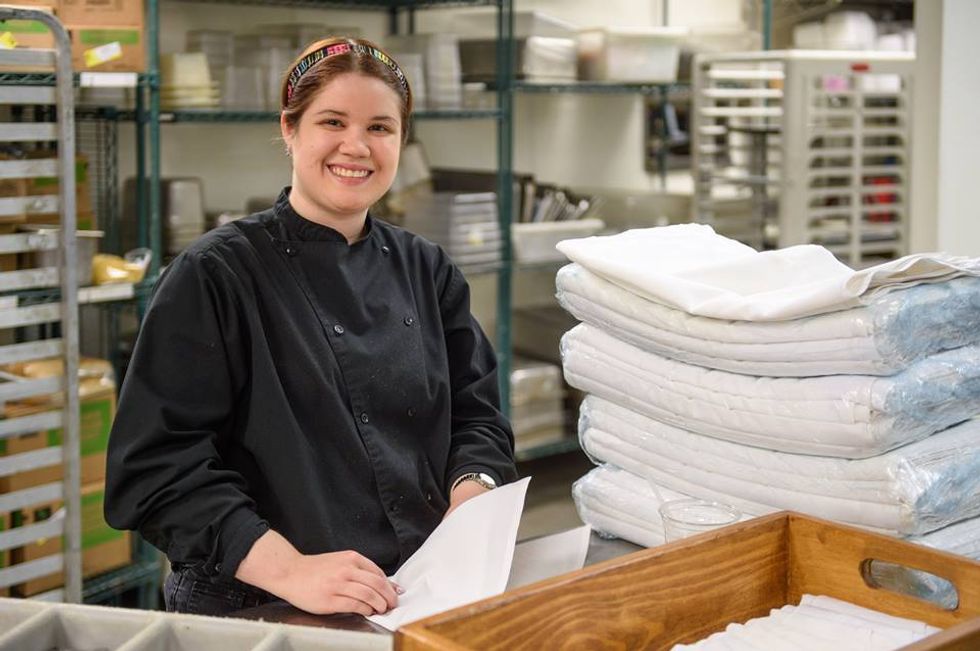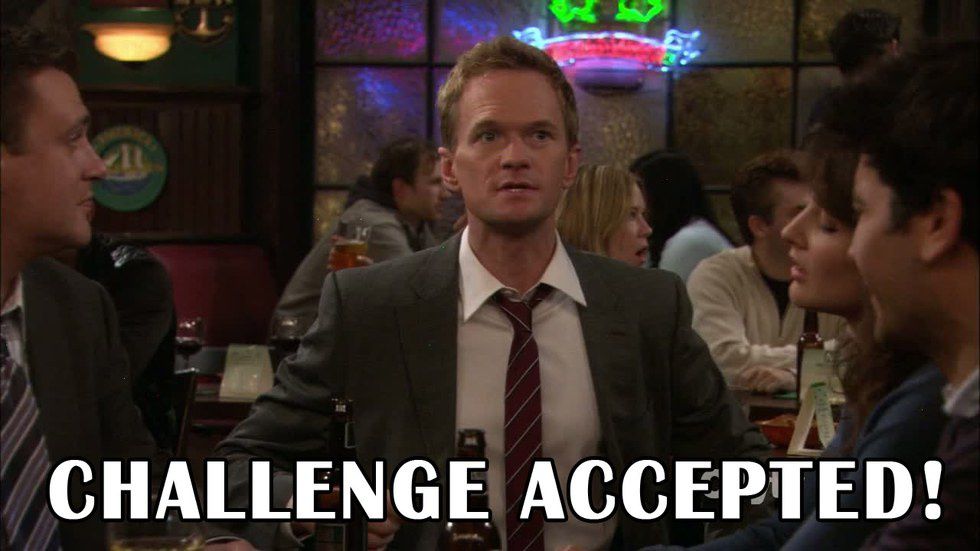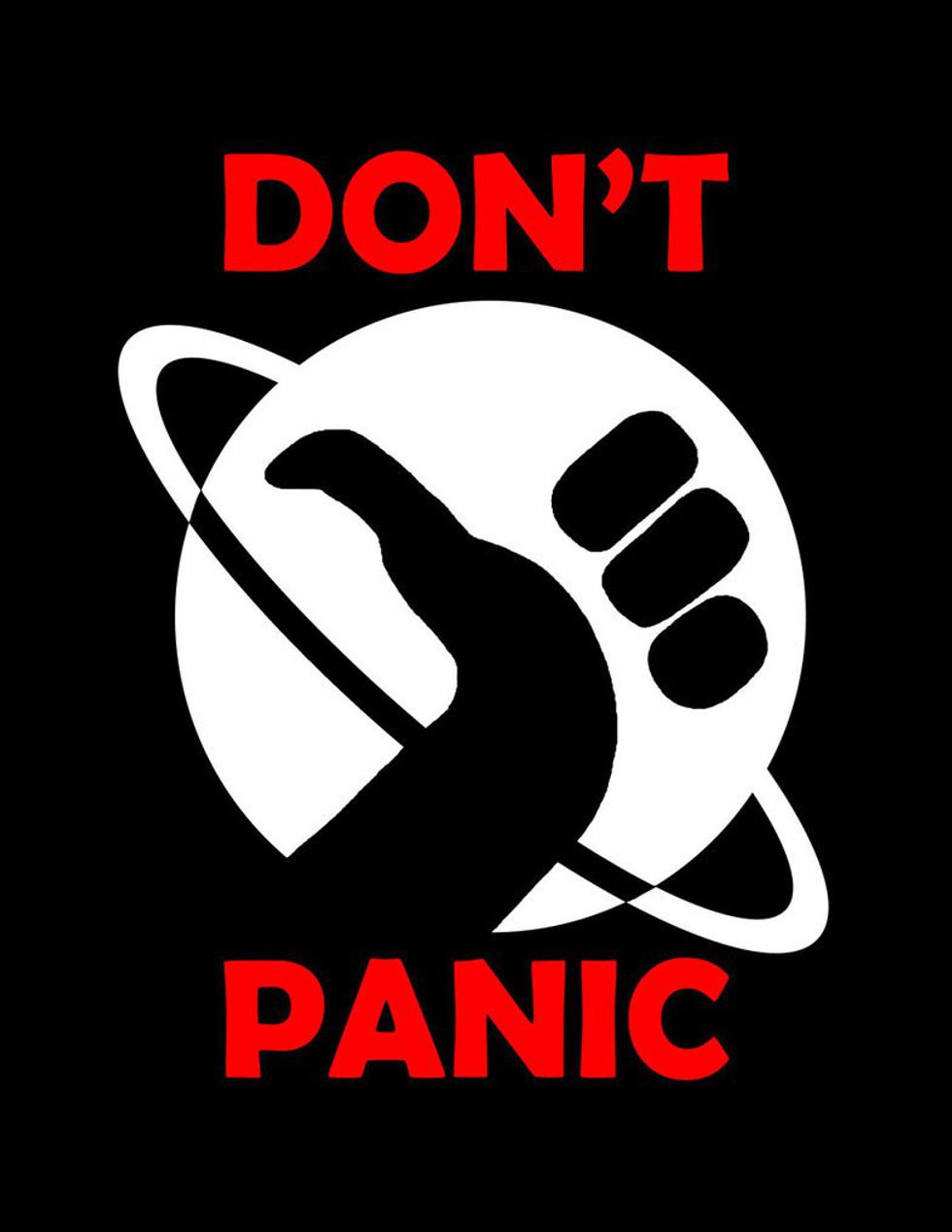I'm going to be honest with you... I joined Best Buddies on a whim. I walked over to their table at my school's club fair mainly because my awesome older sister loves her job as a special education teacher, so I figured it was worth a shot. Two years later, I still consider that to be the best decision I've made during my time in college.
Best Buddies International is a non-profit organization that looks to encourage one-on-one friendships between students and people with intellectual and developmental disabilities, also known as IDD. In September of my freshman year of college, I had an interview with an executive board member and was lucky enough to be chosen as a "peer buddy", meaning that I would be personally matched with a new best buddy. A few days later, I met Alice.
I'm embarrassed to admit that I was a little nervous at first. I didn't know much about autism or any other developmental disabilities, and had no idea what to expect. As I was about to find out, the fact that Alice happened to have autism didn't really change anything. We were the same age, loved the same trashy magazines, and listened to the same music. At the time, Alice had just graduated from high school and was figuring out what her next move was. So was I.
Over the past two years, Alice has become one of the most important people in my life. She's met my family and all of my other friends. She was there to talk about school, friends, boys, and all the changes that were going on in my life, and I was lucky enough to experience a few milestones in her life with her as well. Turns out, Alice's next move was getting a job at Papa Vino's and absolutely killing it.
If seeing the super cool pair that is Alice and I wasn't enough to convince you to sign up for Best Buddies, here are some more reasons why you should join.
1. It's not really volunteering.
Sure, Best Buddies is branded as a volunteer organization, but I wouldn't necessarily define it as one. Some people associate volunteering with work, and that is absolutely not what Best Buddies is. I look forward to our events because it means that I get to go hang out with Alice, gossip, and eat a ton of food. So, I'm pretty much doing what I otherwise do all day anyways. You just get to create a long-lasting friendship on top of that.
2. You learn.
Before I joined Best Buddies, I had never befriended a person with developmental disabilities because I didn't understand what exactly a disability like that entailed. Now, I count all the Notre Dame buddies as friends. Understanding a person is the first step towards friendship, and now I've opened the door to new relationships with a bunch of amazing new people.
3. The events are a ton of fun.
In the past, Alice and I have played soccer with the Notre Dame soccer team, attended tennis matches, gone bowling, and dressed up as flappers for a Halloween party. Best Buddies doesn't only want to inspire friendship; they also want all of their members to have a great time.
4. You'll make new friends.
I've found friends in both fellow students and the buddies. It's a great way to meet new people that you may not have met otherwise.
5. It will change you more than you expect.
My past volunteer work definitely provided me with some great experiences, but no other organization has helped and changed me as much as Best Buddies has. Seeing Alice's undying happiness and optimism has made me a happier and just generally better person.
Too busy with other activities on campus? Here are a few more ways you can help Best Buddies with their mission every single day.
1. Call it what it is.
Before I met Alice and my other buddies, I was guilty of using the word "retarded" to describe things that I thought were dumb. I hate to be the politically correct police here, but the only person that looks dumb when you say things like that is you. In addition, I've noticed a disturbing trend recently where people somehow think it's okay to call other people or the things they do "autistic" when they do something unintelligent. Newsflash: a person like Alice is too intelligent to do and say any of the stupid stuff that you do and say. Call it what it is: "you're being an idiot".
2. Be supportive.
When you meet someone with a developmental disability, remember that they may do things a little differently than you do, and that's okay. Just because you are different does not make either of you better than the other. Try to support the other person instead of getting impatient with them.
3. Remember adults with intellectual disabilities are just that: adults.
I know that when I first met Alice, I talked to her like a child because I was ignorant to what her disability was. My voice took on a higher pitch and I talked much more slowly than I would have to one of my friends from school. Later, I realized that she was just like me, and I should talk to her like I would talk to anyone else. Having a disability does not make them any less of an adult, therefore we should treat them as such.
4. Use people-first language.
One thing that I didn't realize was that using the term "autistic person" was dehumanizing and hurtful. A really easy way to be more respectful of those with disabilities is to refer to them not as their disability, but as a "person with autism" or a "person with a disability". Or, better yet, just "a person"!
5. Be a buddy.
I have been lucky enough to meet a wide variety of people throughout my life. Everyone is different, and Alice and my other buddies are no more different from me than any of the other people I have met. You never know how much a person will change you until you go out there and start a friendship. Judging people (and I'm not just talking about those with disabilities) by the way they look or speak is never a good idea. Sometimes, you'll find a best friend in someone you originally thought was entirely different from you. And that's a beautiful thing.























